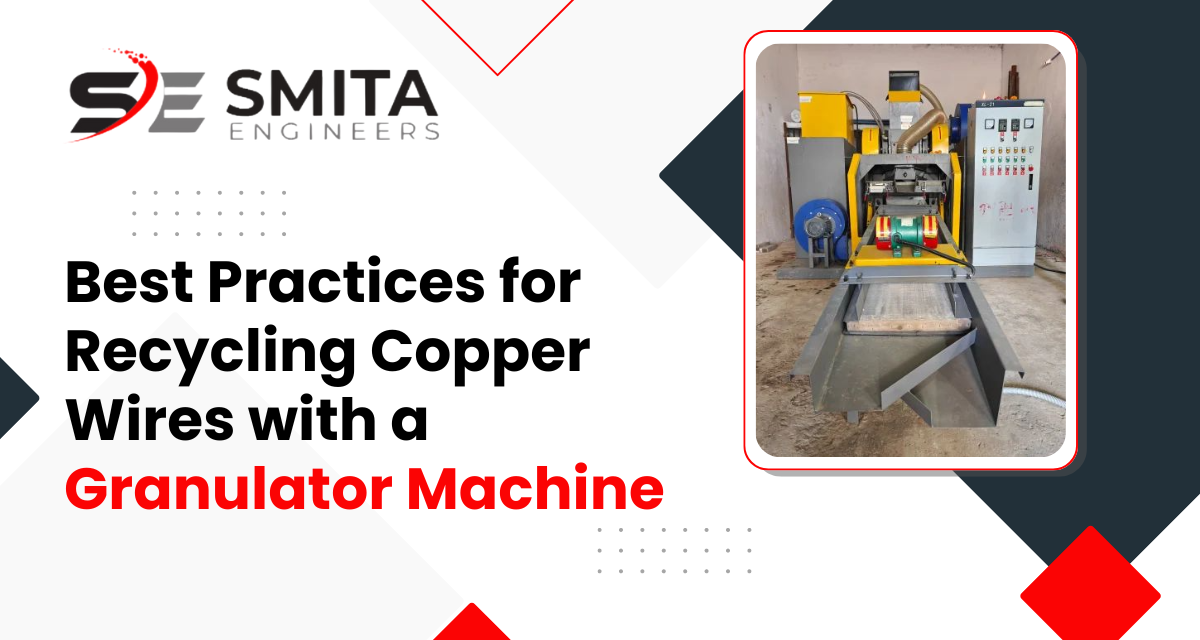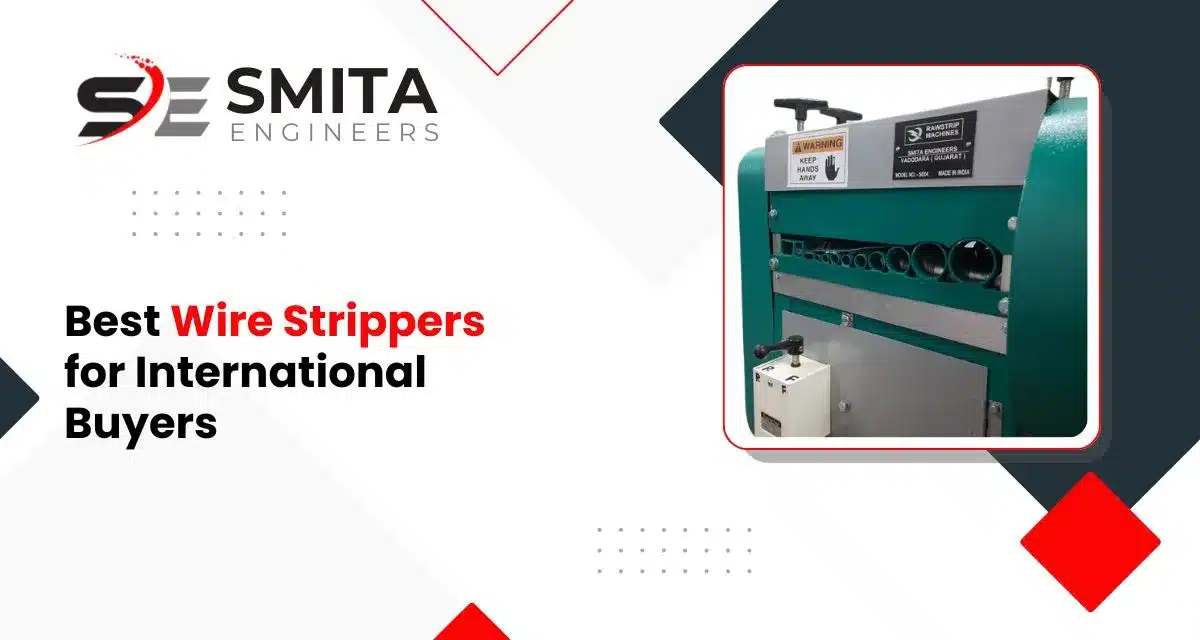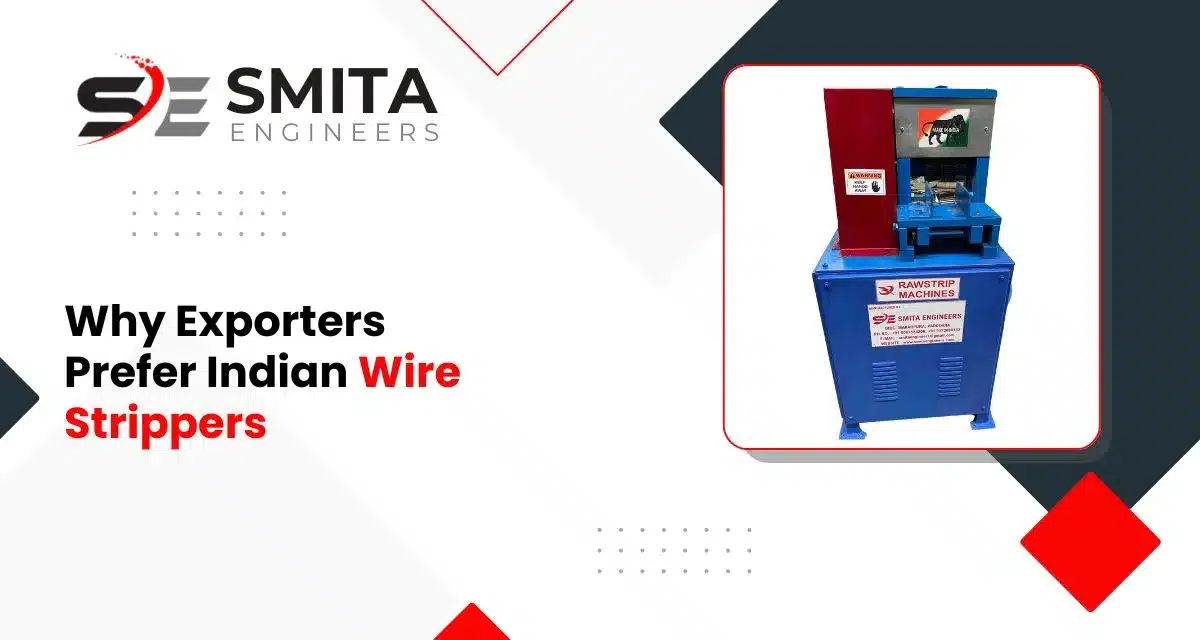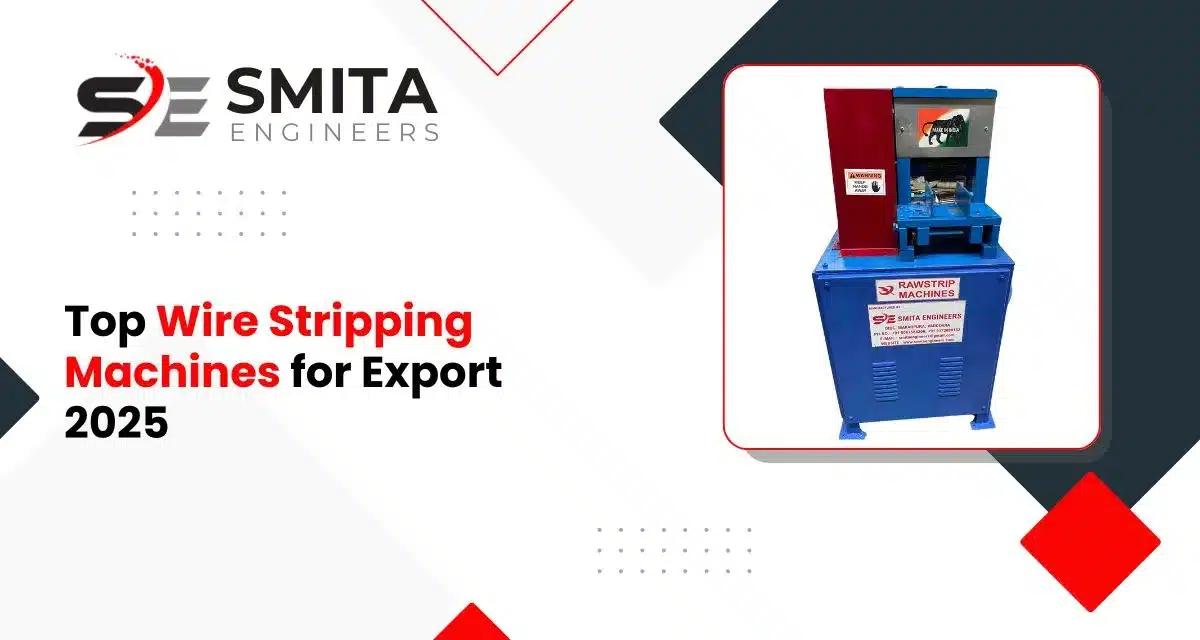Wire strippers are indispensable tools in electrical, electronics, and recycling industries. Whether you're managing a…

Copper Wire Recycling is vital to Sustainable Practices, offering Both Environmental and Economic Benefits. Granulator Machines play a Pivotal Role in this Process, Efficiently Transforming discarded Copper Wires into Reusable Granules. In this article, We’ll Explore the Best Practices for Recycling Copper Wires using Granulator Machines. By Implementing these Practices, Businesses can not only Minimize their Environmental Footprint but also Capitalize on the Economic Value of Recycled Copper.
Understanding Granulator Machines for Copper Wire Recycling
Granulator Machines are Indispensable Tools in the Process of Recycling Copper Wires Efficiently. These Machines are specially Designed to Shred and Granulate Copper Wires into Uniform Particles, Facilitating the Recycling Process and Maximizing the Value of Recycled Materials. Understanding the Mechanics of Granulator Machines is crucial for Businesses Engaged in Copper Wire Recycling.
Key Components
Feed Hopper: Where copper wires are fed into the machine for processing.
Cutting Blades: These blades shred the copper wires into smaller pieces during the granulation process.
Screen: Determines the size of the granules produced, ensuring uniformity in the output.
Motor: Powers the machine, driving the cutting blades and other components.
Working Mechanism
- Copper Wires are fed into the Granulator Machine through the Feed Hopper.
- The Cutting Blades Shred the Wires into Smaller Pieces as they pass Through.
- The Granulated Copper Particles are then Separated from Other Materials and Collected for Further Processing or Sale.
Preparing for Recycling
Before Feeding Copper Wires into a Granulator Machine for Recycling, Proper Preparation is Essential to Ensure Optimal Results. This Preparation process involves Several Crucial Steps aimed at Maximizing the Efficiency of the Recycling Process and Preserving the Quality of the Recycled Materials.
Collection and Sorting
Begin by Collecting Copper Wires from Various Sources, such as Electrical Cables, Appliances, and Machinery. Sort the Wires based on their Size, Gauge, and Type to Streamline the Recycling Process. Separating Different Types of Wires also helps Prevent Contamination during Recycling.
Removal of Non-Metallic Materials
Next, Remove any Non-metallic Materials attached to the Copper Wires, such as Plastic Insulation, Rubber Coatings, or Connectors. This can be done Manually using Wire Stripping Tools or through Automated Stripping Machines. Removing these Materials ensures the Purity of the Recycled Copper and prevents Damage to the Granulator Machine.
Cleaning and Pre-Treatment
Once the Mon-metallic Materials are Removed, clean the Copper Wires to Eliminate any Dirt, Grease, or Residue that may affect the Recycling Process. Pre-treat the Wires if Necessary to Remove Stubborn Contaminants or Oxidation Buildup, ensuring Optimal Conductivity and Quality of the Recycled Copper.
Quality Control Checks
Before feeding the prepared Copper Wires into the Granulator Machine, perform Quality Control Checks to ensure they meet the Required Standards for Recycling. Inspect the Wires for any Remaining Impurities, Defects, or Inconsistencies that could Impact the Quality of the Recycled Materials.
Safety Precautions
Throughout the Preparation Process, prioritize Safety by Wearing Appropriate Protective Gear, such as Gloves, Safety Glasses, and Protective Clothing. Follow Safety Guidelines and Procedures to Prevent Accidents, Injuries, or Exposure to Hazardous Materials during Preparation.
Best Practices for Recycling Copper Wires During Operation
Operating Granulator Machines for Recycling Copper Wires requires Adherence to Best Practices to ensure Efficiency and Quality Output. Here are Essential Tips to Follow during Operation:
Maintain a Consistent Feed Rate: Avoid Fluctuations in Feed Rate to ensure Smooth Operation and Optimal Performance of the Machine.
Proper Load Management: Distribute the Load evenly across the Machine to prevent Uneven Wear on Components and Maximize Longevity.
Regular Monitoring and Adjustment: Continuously Monitor the Output for Uniformity and Quality and make Adjustments as Necessary to Maintain Desired Results.
Scheduled Maintenance Checks: Conduct Routine Maintenance Checks on the Machine, including Blade Sharpening and Screen Cleaning, to prevent Downtime and Ensure Consistent Performance.
Safety First: Prioritize Safety by following all Safety Protocols and Guidelines, and Ensuring Operators are Adequately Trained to Operate the Machine Safely.
By implementing these Best Practices during the Operation of Granulator Machines, Businesses can Optimize the Efficiency and Effectiveness of their Copper Wire Recycling Processes, Leading to Higher-Quality Recycled Materials and Reduced Downtime.
Safety Tips while Recycling
Safety is Important when Operating Granulator Machines for Recycling Copper Wires. Follow these Essential Safety Tips to ensure a Secure Working Environment:
Wear Protective Gear: Equip Yourself and Your Team with Appropriate Safety Gear, including Gloves, Goggles, and Ear Protection, to prevent Injuries from Sharp Objects and Loud Noise.
Operator Training: Provide Comprehensive Training to Operators on the Safe Operation of Granulator Machines, including Proper Handling Procedures and Emergency Protocols.
Emergency Procedures: Establish Clear Protocols for Handling Emergencies, such as Machine Jams or Accidents, to Minimize Risks and Ensure Prompt Response and Resolution.
Regular Inspections: Conduct Regular Inspections of the Granulator Machine and its Surroundings to Identify and Address Potential Safety Hazards, such as Loose Parts or Electrical Issues.
Proper Ventilation: Ensure Adequate Ventilation in the Recycling Area to Prevent the Buildup of Fumes or Dust that may Pose Respiratory Hazards to Operators.
By Prioritizing Safety and Adhering to these Tips, you can Create a Safer Working Environment for your Team and Mitigate Risks during the Recycling Process.
Environmental and Economic Benefits
Recycling Copper Wires with Granulator Machines offers Significant Environmental and Economic Advantages, making it a Sustainable and Profitable Practice. Here are the Key Benefits:
Resource Conservation: Recycling Copper Wires reduces the Need for Virgin Copper Extraction, Conserving Natural Resources, and Minimizing Environmental Impact.
Energy Savings: Recycling Copper requires Significantly Less Energy compared to Producing New Copper from Raw Materials, Leading to Reduced Greenhouse Gas Emissions and Energy Consumption.
Waste Reduction: By Diverting Copper Wires from Landfills, Recycling helps Reduce Waste and Minimize Environmental Pollution, Contributing to a Cleaner and Healthier Environment.
Economic Value: Recycling Copper Wires with Granulator Machines Generates Revenue through the Sale of Recycled Copper, providing a Valuable Source of Income for Businesses and Contributing to Economic Growth.
Job Creation: The Recycling Industry creates Jobs in Various Sectors, including Collection, Processing, and Manufacturing, thereby Stimulating Economic Activity and Supporting Local Communities.
Sustainable Development: By Promoting Resource Conservation, Reducing Waste, and Generating Economic Value, Recycling Copper Wires contributes to Sustainable Development Goals and fosters a More Sustainable Future.
By Harnessing the Environmental and Economic Benefits of Recycling Copper Wires with Granulator Machines, Businesses can not only Reduce their Environmental Footprint but also Realize Cost Savings and Profitability while Contributing to a More Sustainable Society.
FAQs
What is a Granulator Machine, and How Does it Work?
A Granulator Machine is designed to Shred and Granulate Copper Wires into Uniform Particles, Facilitating Efficient Recycling. Copper Wires are fed into the Machine and Shredded by Cutting Blades, and the Granules are then Separated and Collected for Further Processing.
Why is it Important to Remove Non-metallic Materials before Recycling Copper Wires?
Removing Non-metallic Materials such as Plastic Insulation and Rubber Coatings ensures the Purity of the Recycled copper and prevents Damage to the Granulator Machine, Leading to Higher-Quality Output and Efficient Recycling.
What Safety Precautions should be taken when Operating a Granulator Machine?
Operators should Wear Protective Gear, Undergo Comprehensive Training, Follow Established Emergency Procedures, Conduct Regular Inspections, and Ensure Proper Ventilation to Maintain a Secure Working Environment.
How Does Recycling Copper Wires Benefit the Environment?
Recycling Copper Wires conserves Natural Resources, Reduces Energy Consumption, Minimizes Greenhouse Gas Emissions, and helps Reduce Waste by Diverting Wires from Landfills, contributing to a Cleaner and Healthier Environment.
What are the Economic Benefits of Recycling Copper Wires?
Recycling Copper Wires Generates Revenue through the Sale of Recycled Materials, Creates Jobs, reduces Operational Costs, and supports Sustainable Development, making it a Profitable and Economically Beneficial Practice.
Conclusion
Copper Wire Recycling Machines are integral to Sustainable Practices, offering Substantial Environmental and Economic Benefits. Granulator Machines are Essential Tools in this Process, Efficiently Transforming discarded Copper Wires into Reusable Granules. By understanding the Mechanics of these Machines and Adhering to Best Practices during Preparation and Operation, Businesses can Enhance the Efficiency and Effectiveness of their Recycling Processes. Prioritizing Safety ensures a Secure Working Environment, while the Significant Environmental and Economic Advantages make Copper Wire Recycling a Sustainable and Profitable Endeavor. Embrace these Practices to minimize your Environmental Footprint, Capitalize on the Economic Value of Recycled Copper, and contribute to a More Sustainable Future.




